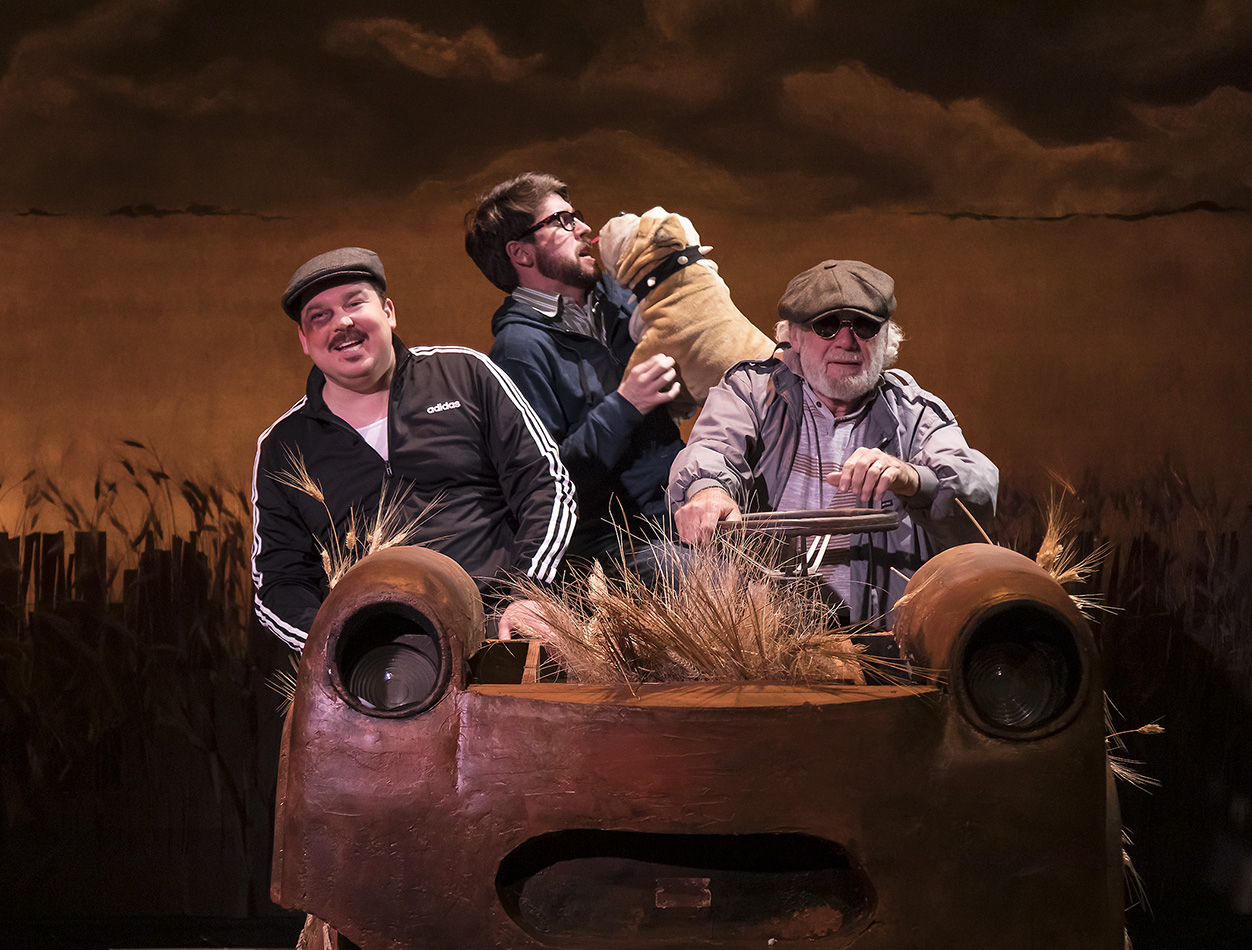‘Everything Is Illuminated’ Doesn’t Translate
Strong Effort by ETC, But Novel Should Stay Between Covers

In Everything Is Illuminated, the past is quite literally another country, in this case, Ukraine. Combining a millennial author’s search for his Jewish roots with the demotic pleasures of the picaresque, Jonathan Safran Foer’s popular 2002 debut novel forms the basis for this stage adaptation by Simon Block. On one side, there’s the young American author, “Jonathan Safran Foer,” ably portrayed by Jeremy Kahn. On the other, there’s a host of Ukrainians, past and present, including Foer’s tour guide, Alex (an engaging Matt Wolpe); Alex’s crotchety grandfather (Adrian Sparks); a young waitress (Emily Goglia); and an old woman (Anne Gee Byrd). Three of the four Ukrainians play multiple roles, with Kahn and Byrd left to inhabit single parts.

The play starts off as a comedy, with Alex and his grandfather speaking in accented English to indicate English, and unaccented American English to indicate Ukrainian. What begins as a relatively harmless solution to the dilemma faced by many dramatists who write about other places eventually turns into something of an obstacle. Exchanges that represent moments of translation, such as when Foer demands of Alex, “What did she say?” turn into redundancies as Alex is forced to “translate” things the audience has already heard from English into … English. Nevertheless, it’s a beautiful set and these are talented actors, so the first act passes rapidly as Foer and his tour guides travel across the Ukrainian landscape in their beat-up automobile, accompanied by Grandfather’s rowdy dog.
In Act Two, Alex, who until now has been depicted following the blueprint for satirizing Eastern Europeans drawn up in the late 1970s by Steve Martin and Dan Ackroyd as “two wild and crazy guys,” must find a deeper place as he discovers his grandfather’s dark collaborationist past. What may have worked in the novel — a pair of gruesome monologues detailing Nazi atrocities, some imaginary sequences about the shtetl set in a yet more remote time — fail to hold the stage as the show’s sheer accumulation of ideas and narrative directions reaches a breaking point. The inclusion of a brief coda in which the author imagines himself reading a “much beloved” passage from the novel he’s been writing assumes too much. “Wait, what?” one wants to ask, and more than once. Perhaps, despite a strong effort by the ETC team behind the production, this is one novel that should have stayed between the covers.




You must be logged in to post a comment.